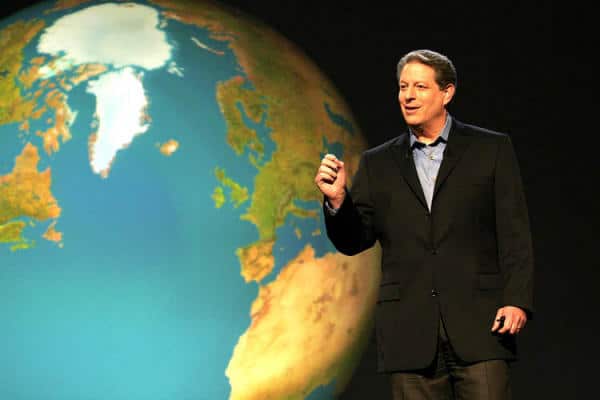I’ve previously written about University of Michigan business professor Andrew Hoffman’s insightful work on the underlying motivations behind climate skepticism. Now, I’ve come across a more detailed recent paper, in Organization and Environment, that advances the case.
Hoffman’s strategy this time is to examine newspaper editorials, op-eds, and letters to the editor from both sides of the issue—795 of them, published between September of 2007 and September of 2009. Hoffman combines a look at these opinion pieces with an examination of the rhetoric at last year’s Heartland Institute climate denial conference.
His conclusion is that the two sides of the debate simply argue past each other. The Heartland folks, of course, think climate science is ideological and corrupt, and action on this non-existent problem will hurt the economy—and that, basically, it’s all an environmentalist power grab. They even detect hints of socialism or communism at the root of the movement for climate action.
But this we know already. What’s more interesting is the newspaper writings.
A large majority of the articles were convinced of climate risks–but there were lots of disagreeing letters to the editor. Overall, “skeptic” opinions came not from journalists or experts, but from average citizens. And what lay at the center of their logic, content wise?
Not surprisingly, almost 90% of skeptical articles reference science. It suggests that the skeptical logic centers on the idea that the problem definition of climate change is the crux of the debate. For the skeptical, there is no problem or there is uncertainty about whether there is a problem.
The skeptic articles are also very interested in diagnosing and explaining the “motives” of those who disagree with them—and in bashing one person in particular. Guess who?
Similar to the terminology of the climate denier movement, nearly 25% of all skeptical articles refer to climate change proponents as “alarmists.” More specifically, the dominant political target of these arguments is Al Gore, who is blamed by skeptical authors for fabricating the problem of climate change for ideological and personal gain. A word count of all the skeptical articles showed that nearly 40% of them mention Gore in one fashion or another.
Not only do skeptics love to talk about Gore—but they think he’s in it for the money, not the planet. Wild, off base? Sure. but that’s what they say. They are going after our motives, and our leaders.
Those who are convinced climate is a problem overwhelmingly talk about it in a different way. They discuss not so much the validity of the science, but the many risks from doing nothing, and the specific solutions—such as legislation—for addressing the issue.
Hoffman’s conclusion is that the two sides are talking about vastly different things—and also, that the level of demonization is far too high for de-polarization to occur:
The form of the political dialogue illustrated above (which may be suggestive of the denier/believer extreme of the debate) suggests a conflict of positions that are relatively exclusive and rigid, positions that will not yield to negotiation and resolution because they define and establish very strong in-group/out-group distinctions. At the national level at least, it appears that for some of the more extreme elements, political debate has broken down and the two sides are talking past each other.
No shock, maybe–but certainly the situation is bad, bad, bad. It is increasingly being observed that the climate debate is becoming like the abortion debate—far too polarized and entrenched for any dialogue to occur. Hoffman’s results lend strength to this characterization.
Subscribe to our newsletter
Stay up to date with DeSmog news and alerts







